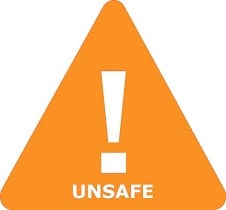Is UNII-80Q9QWN15M Safe in Breastfeeding
Question
I am a breastfeeding mother and i want to know if it is safe to use UNII-80Q9QWN15M? Is UNII-80Q9QWN15M safe for nursing mother and child? Does UNII-80Q9QWN15M extracts into breast milk? Does UNII-80Q9QWN15M has any long term or short term side effects on infants? Can UNII-80Q9QWN15M influence milk supply or can UNII-80Q9QWN15M decrease milk supply in lactating mothers?
UNII-80Q9QWN15M lactation summary

- DrLact safety Score for UNII-80Q9QWN15M is 5 out of 8 which is considered Unsafe as per our analyses.
- A safety Score of 5 indicates that usage of UNII-80Q9QWN15M may cause serious side effects in breastfed baby.
- Our study of different scientific research indicates that UNII-80Q9QWN15M may cause moderate to high side effects or may affect milk supply in lactating mother.
- Our suggestion is to use safer alternate options rather than using UNII-80Q9QWN15M .
- It is recommended to evaluate the advantage of not breastfeeding while using UNII-80Q9QWN15M Vs not using UNII-80Q9QWN15M And continue breastfeeding.
- While using UNII-80Q9QWN15M Its must to monitor child for possible reactions. It is also important to understand that side effects vary largely based on age of breastfed child and time of medication in addition to dosage.
- Score calculated using the DrLact safety Version 1.2 model, this score ranges from 0 to 8 and measures overall safety of drug in lactation. Scores are primarily calculated using publicly available case studies, research papers, other scientific journals and publically available data.
Answer by Dr. Ru: About UNII-80Q9QWN15M usage in lactation
It is a Prolactin-inhibitor and Dopamine-D2-receptor selective agonist drug used on patients with hyperprolactinemia who are not responsive to Bromocriptine. There has been released reports on prolonged breastfeeding by mothers affected of prolactinoma or hyperprolactinemia, some of them were receiving treatment with Prolactin-inhibiting drugs.
Alternate Drugs for Prolactin Inhibitors. ATC G02CB
Cabergoline(Unsafe)
Lisuride(Dangerous)
Co-Dergocrine Mesilate(Dangerous)
Dihydroergocryptyne Mesilate(Dangerous)
Dihydroergocristine Mesilate(Dangerous)
Quinagolide(Unsafe)
Lysuride(Dangerous)
